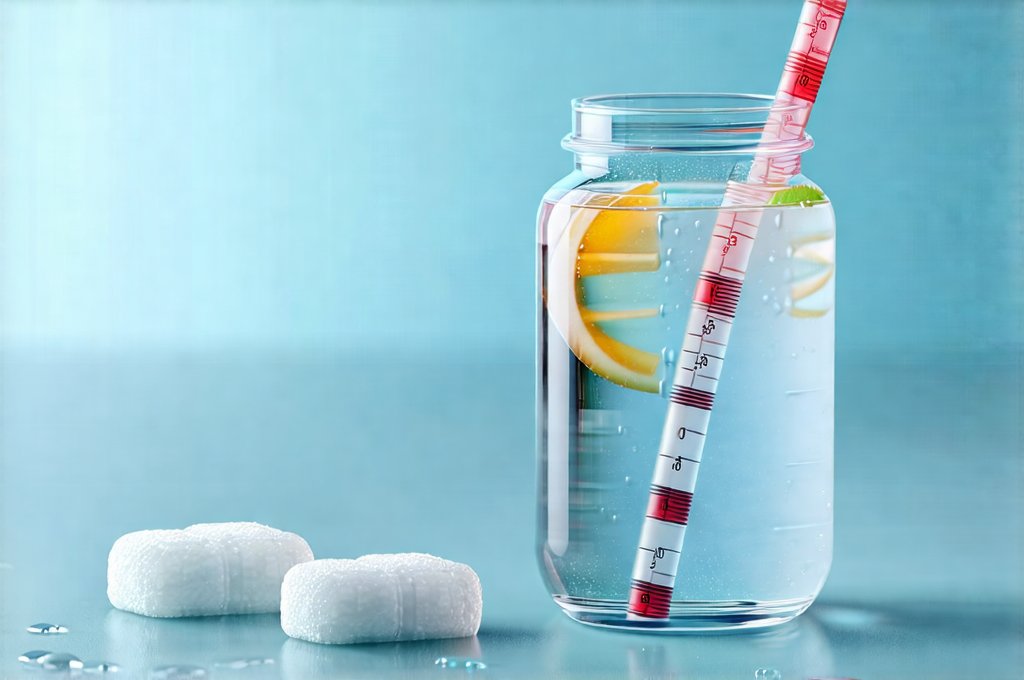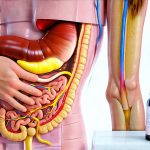Digestion is often seen as simply breaking down food, but it’s far more complex than that. It’s an intricate electrochemical process reliant on precisely balanced fluids and minerals – electrolytes – to function optimally. When these delicate balances are disrupted, digestive issues ranging from bloating and constipation to nutrient malabsorption and chronic discomfort can arise. Many people focus solely on what they eat, overlooking the crucial role of how their bodies absorb and utilize those nutrients. A robust digestive system isn’t just about a healthy diet; it’s about ensuring your body has the necessary electrical charge and mineral foundation to process that food effectively.
Electrolytes aren’t merely for athletes rehydrating after strenuous activity, as is commonly believed. They are fundamental to nearly every bodily function, including nerve impulse transmission, muscle contraction, and – critically for our discussion – the movement of fluids across cell membranes within the digestive system. Think of your gut as a highly sophisticated plumbing network. Electrolytes help regulate the flow, ensure proper absorption, and prevent stagnation. Without sufficient electrolytes, or with imbalances between them, this “plumbing” becomes sluggish and inefficient, leading to a cascade of potential problems. Understanding how these minerals interact and how to support their balance is key to unlocking improved digestion and overall wellbeing.
The Core Electrolytes & Their Digestive Roles
The term “electrolyte” refers to minerals that carry an electrical charge when dissolved in fluids like blood. These include sodium, potassium, chloride, magnesium, and calcium – each playing a unique and interconnected role in digestive health. Sodium is vital for fluid balance and nerve transmission, helping to initiate the digestive process. Potassium works alongside sodium, regulating muscle contractions within the intestines (peristalsis) that move food along. Chloride aids in stomach acid production, essential for breaking down proteins. Magnesium is often called the “master mineral,” involved in over 300 enzymatic reactions, including those crucial for nutrient absorption and bowel regularity. Calcium isn’t just for bones; it helps regulate muscle contractions in the gut and supports enzyme function.
These electrolytes don’t operate in isolation. They exist in a delicate ratio to one another. For example, an excess of sodium without sufficient potassium can disrupt fluid balance and hinder proper digestion. Similarly, low magnesium levels can impair calcium absorption, leading to imbalances that affect intestinal motility. Maintaining this electrolyte harmony is more important than focusing on individual deficiencies or excesses. Many modern diets are skewed towards higher sodium intake and lower intakes of potassium, magnesium, and chloride, contributing to common digestive issues.
A healthy gut microbiome also influences electrolyte absorption. Certain bacteria can enhance the uptake of minerals like magnesium, while dysbiosis (an imbalance in gut flora) can impair their absorption. Therefore, nurturing a diverse and thriving gut microbiome is an indirect but significant way to support optimal electrolyte balance and digestion. It’s a holistic approach – what you eat, how your body absorbs it, and the health of your internal ecosystem all play crucial roles.
Hydration & Electrolyte Loss
Dehydration is a major contributor to electrolyte imbalances and subsequent digestive problems. When dehydrated, the body attempts to conserve water, often at the expense of proper digestion. This can lead to constipation as the colon reabsorbs more water from stool, making it harder and more difficult to pass. Furthermore, sweating – whether through exercise or simply being in a hot environment – leads to significant electrolyte loss, particularly sodium and chloride. Even everyday activities like breathing expel water and electrolytes.
- Consider these factors that increase hydration/electrolyte needs:
- Intense physical activity
- Hot weather conditions
- Diarrhea or vomiting (acute electrolyte loss)
- High caffeine or alcohol consumption (diuretic effect)
- Certain medications (diuretics, laxatives)
Replenishing fluids alone isn’t always enough. Plain water can actually dilute electrolyte concentrations further, exacerbating the imbalance. That’s why incorporating electrolytes into your hydration strategy is so important. This doesn’t necessarily mean resorting to sugary sports drinks. Natural sources of electrolytes, discussed below, are often a superior option. Prioritizing consistent hydration throughout the day, rather than waiting until you feel thirsty, is a cornerstone of digestive health. If balancing gut healing with daily life feels overwhelming, remember small changes can make a big difference.
Dietary Sources of Electrolytes
Fortunately, many whole foods are excellent sources of electrolytes. Incorporating these into your diet is a natural and effective way to support balance. Potassium-rich foods include bananas, avocados, sweet potatoes, spinach, and coconut water. Magnesium can be found in dark leafy greens, nuts (especially almonds and cashews), seeds (pumpkin and chia seeds), and dark chocolate. Calcium isn’t just in dairy; it’s also present in fortified plant milks, leafy greens, and sardines with bones. Sodium is readily available in most foods, but excess intake should be moderated.
- Focus on whole, unprocessed foods as your primary source of electrolytes.
- Limit processed foods high in sodium and low in other essential minerals.
- Consider incorporating naturally electrolyte-rich beverages like coconut water or diluted fruit juice (in moderation).
- Pay attention to mineral content in different cooking methods; steaming preserves more nutrients than boiling.
Beyond food, certain herbal teas can also contribute to electrolyte balance. Dandelion root tea, for example, is a natural diuretic that helps flush excess sodium while providing potassium. Hibiscus tea offers similar benefits. However, it’s important to note that these teas should be consumed in moderation and are not substitutes for a well-rounded diet. The goal isn’t necessarily to add electrolytes as much as it is to create a dietary foundation that supports their natural absorption and utilization. To further refine your approach, consider how to eat seasonally for optimal nutrient intake.
Addressing Specific Digestive Issues with Electrolyte Support
Electrolyte imbalances can manifest differently depending on the specific digestive issue you’re experiencing. For example, constipation often stems from dehydration and low magnesium levels, leading to sluggish intestinal motility. Increasing water intake and incorporating magnesium-rich foods or supplements (with medical guidance) can help restore regularity. Diarrhea, conversely, results in rapid electrolyte loss, particularly sodium and potassium. Replenishing these electrolytes is crucial during and after a bout of diarrhea to prevent dehydration and further digestive upset.
Bloating and gas are often linked to imbalances between sodium and potassium, affecting fluid balance within the gut. Reducing sodium intake and increasing potassium-rich foods can help alleviate these symptoms. Similarly, individuals with Irritable Bowel Syndrome (IBS) may find that electrolyte fluctuations exacerbate their symptoms. Identifying personal triggers and adjusting dietary intake accordingly can be beneficial. It’s important to remember that electrolyte imbalances are often a contributing factor to digestive issues, rather than the sole cause. Addressing underlying factors like food sensitivities or gut dysbiosis is also essential for long-term improvement. Consulting with a healthcare professional or registered dietitian can provide personalized guidance and ensure you’re addressing your specific needs effectively. If you’ve recently experienced an illness, supporting gut healing is crucial for restoring balance. Remember to also consider sleep hygiene as it impacts digestion. For those with sensitive systems, learning how to shop is essential. And don’t forget that gut bacteria balance plays a significant role in overall health.


















